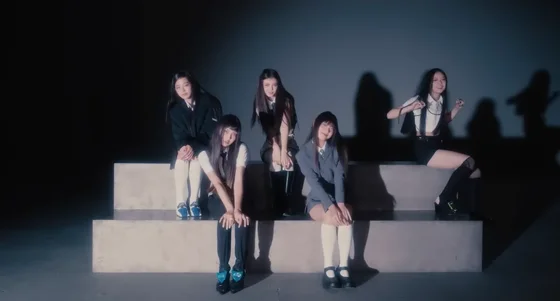Will the "Lee Seung Gi law" be a drug that provides a safety net to the Kpop market or a poison that restricts activities?
The entertainment industry has been shocked over the so-called "Lee Seung Gi Law" which requires the agency to notify popular culture artists of their earnings settlement at least once a year.
On the 21st of last month, the National Assembly's Culture, Sports and Tourism Committee passed a revision to the Popular Culture and Arts Industry Development Act, also known as the "Lee Seung Gi Law." The revision calls for mandatory disclosure of earnings settlement details to prevent conflicts between celebrities and their agencies from arising due to opaque accounting.
This included labor-related provisions for minors that are celebrities. The problem arose here. The revision lowered the upper limit on working hours for minors, prohibited excessive appearance management, forced health and safety risks, assault, abuse, sexual harassment, and infringement of education rights such as absence from school or dropping out.
However, as the revised working hours are disclosed, there are voices of opposition. Five organizations, including the Korea Entertainment Producers Association, the Korea Federation of Management, the Korea Recording Industry Association, the Korea Music Label Industry Association, and the Korea Music Contents Association, issued a statement on the 16th.
They have no disagreement over the establishment of a clause that regularly discloses accounting details and remuneration at least once a year, but they expressed concern that stricter restrictions on working hours for minors could prevent their normal activities.
In particular, among the amendments, it is a position that limiting the time to provide services for youth pop culture artists will cause various problems. Individuals over the age of 15 can now work no more than a maximum of 35 hours per week, while those between ages 12~15 can work a maximum of 30 hours, and those under 12 years old can work no more than 25 hours per week.
According to these standards, most of the members of the fourth-generation group who are currently causing Kpop syndrome are restricted from their activities.
All of the members of NewJeans, including the youngest Hyein (15), who was born in 2008, are teenagers aged 15 to 19. LE SSERAFIM's Hong Eunchae (16) born in 2006, and IVE's maknae Lee Seo (16) born in 2007, are minors, and can only work 35 hours a week and 7 hours a day.
Chiquita (14), the youngest of YG's new girl group BabyMonster, Rora (14), who was born in 2008, and The Wind's Jang Hyounjoon (14), who just debuted last May 15th, will be able to work only 30 hours a week and 7 hours a day.
In response, five organizations said, "The industry has complied with the working hours limit for teenagers under the age of 15 under the current law, and as a result, the average working hours of youth celebrities are shorter than the current revision as of 2020."
In particular, regarding the restrictions on working hours, "It is a considerable restriction on broadcasters or production companies, and performers of the age group may be avoided. As a result, it is self-evident that the second BoA and the second Jung Dongwon will no longer be seen," he said, emphasizing reverse discrimination and inequality. They have demanded the deletion of the provisions and the review of the bill through discussions with the industry.
In fact, incumbent workers working in the Kpop industry agree that the revision is a "table theory" that lacks understanding of the industry. In the case of idol groups leading the music industry, most of them include underage members. Those who have to face difficulties in entertainment activities immediately if the revision takes effect are also in a difficult situation.
An idol agency official said, "The standard of 'working hours' itself is unclear. He said, "It is unclear whether commuting to and from work should be included in practice time, overseas schedules, or even time to get makeup."
The revision was proposed to address chronic industry practices such as unreasonable contracts and profit settlement conflicts between celebrities and entertainment agencies, which have recently erupted several times.
Last year, Lee Seung Gi revealed from his former agency Hook Entertainment that he had not received a profit settlement for music sales for about 20 years, and LOONA's Chuu also added to controversy as unfair contracts with different ratios in profit and cost were known.
Efforts to overhaul related laws and systems and improve treatment are essential for artists who travel beyond Korea. However, it is a problem if regulations directed at agencies that have been engaged in unfair contracts result in damage to artists.
The manager of an idol group, which includes minors, said, "7 hours a day is an absurd standard. If there are restrictions on activities as they are distinguished from members who have become adults during their peak activities, idol members who have to do group activities may feel alienated and deprived," he said.
It is reasonable to guarantee the right to sleep and study so that underage celebrities can grow up healthy in the domestic entertainment industry, where overnight filming is frequent. According to a survey conducted by the National Human Rights Commission of Korea last year, 57.5% of 78 children and young pop culture artists said their average daily sleep time during the filming period was "four to six hours."
The industry is also aware of these problems and has installed and protected its own safety net to protect minors. In fact, the pop culture industry has been striving to protect its rights by preparing "guidelines for young artists" through self-purification efforts and seeking prior consent for night activities.
Concerns are mounting that the revision will only lead to a gap between law and reality without properly capturing the voices of the field. It is time for practical discussions, such as the establishment of a consultative body involving the National Assembly, the government, and the industry, to devise effective measures.
Source

.webp?v=e03e0)
.webp?v=aa0a9)
.webp?v=b889d)
.webp?v=9f444)

.webp?v=0c8ad)
